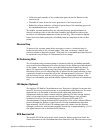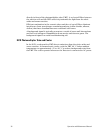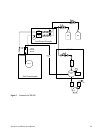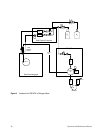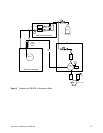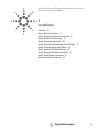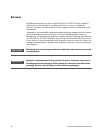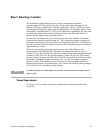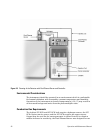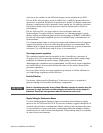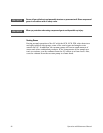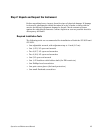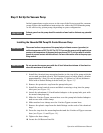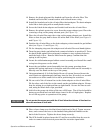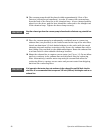
Operation and Maintenance Manual 41
Step 1: Selecting a Location
The instrument should be placed on a clean, unobstructed surface
approximately 22" (55 cm) deep by 10" (24 cm) wide that can support 44
pounds (19.9 kg) in addition to existing equipment. Figure 10 illustrates the
relationship between the major system components. To facilitate proper heat
dissipation, an additional 1-2" (2.5-5.0 cm) should be available at the rear and
on both sides of the instrument. Distance between the SCD and the GC is
limited by the length of gas and heater lines.
Position the Controller on top of the Detector box or in another convenient
location near both the Detector and GC. The Controller requires supplies of
hydrogen and oxidant (air for the SCD and oxygen for the NCD). The length of
the gas inlet lines limit the distance between the Controller and the Burner to
approximately 1 meter.
There are two pump options for the Detector, each with different size
requirements. The Edwards RV5 oil-sealed vacuum pump requires a 6.3"
(16cm) by 18.5" (47cm) area on a shelf or a nearby floor and a minimum height
clearance of 22" (58 cm). The pump weight is 52 lbs (24 kg). The Dry Piston
Pump (oil-free) requires a 9" (22 cm) by 14" (35 cm) area on a shelf or a nearby
floor and a minimum height clearance of 12" (30 cm). The pump weight is
30 lbs (13.6 kg). The distance to the 355 Detector for both pump options is
limited by the power cord connection—6 ft (2 m) for the oil-free piston pump or
8 ft (2.4 m) for the oil-sealed vacuum pump.
Power Requirements
See Chapter 2 for voltage and power requirements. Grounded outlets are
required.
NOTE
Consider placing the oil-sealed pump over a plastic or metal container to capture any oil
leaks or spills.



